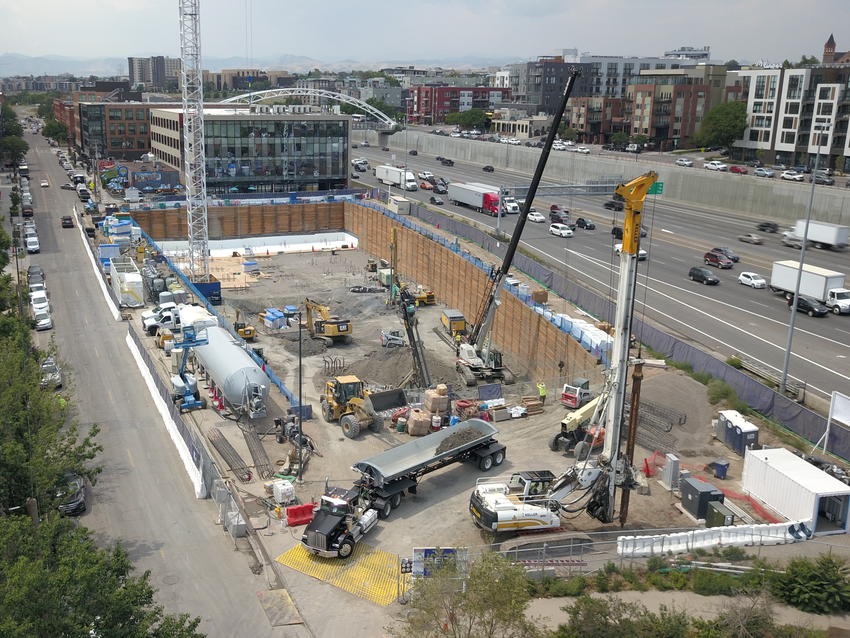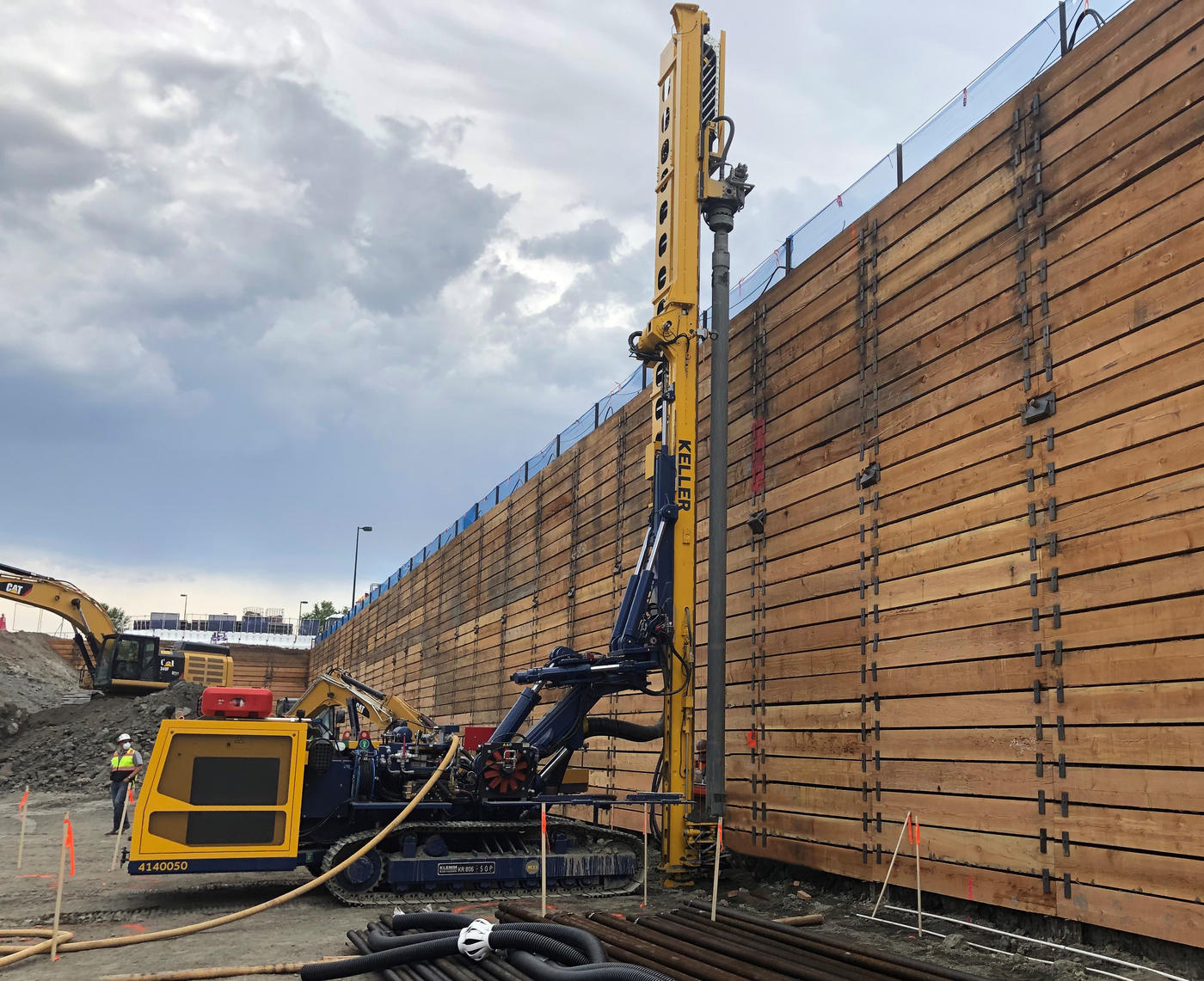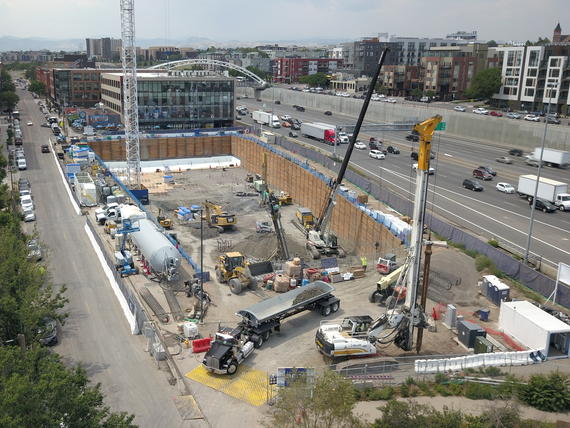Keller designs and installs support of excavation and deep foundations for a multi-use building, working in expansive bedrock and a shallow groundwater table.

The project
During a construction surge in downtown Denver, a new seven-level, multi-use building was constructed on one of the last building sites parallel to the Platte River. To construct the two levels of proposed underground parking, a 30-ft excavation was required. Subsurface conditions consisted of variable fill and alluvium underlain by claystone bedrock, with groundwater existing 15 ft below the existing grade
The challenge
When subjected to wet and dry cycles, the claystone bedrock exhibited expansion and contraction, behaving like expansive clay. With the two levels of parking constructed below the water table, the Denver Building Code required buoyancy effects to be considered in the building design, requiring a solution to counter the buoyancy. Additionally, the proposed site had a maze of underground utilities, requiring design modifications to work within the constraints.
The solution
After consulting on the geotechnical design, Keller was contracted to perform the support of excavation and deep foundations solutions. Before construction and excavation, temporary dewatering wells were installed to maintain a dry workspace for the excavation support system and foundation construction. 27,000 sq. ft. of soldier pile and lagging was installed around the site’s perimeter to support the 30 ft excavation. The shoring was supported by two rows of tieback anchors up to 50 ft-long.
Micropiles were chosen as the most efficient foundation solution to support vertical compression loading from the structure and tensile buoyancy forces. Keller used 3-D CAD modeling to identify and avoid potential utility conflicts during installation. Keller installed 479 micropiles extending 50 ft below the working grade and below the expansive bedrock zone.

